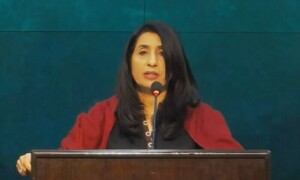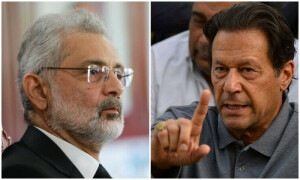LONDON: Pakistan is one of four countries which received highest amount of G20 international public finance for coal-fired power plants in 2016-17, according to a report issued by a London-based think tank on Tuesday.
Despite promising a decade ago to phase out fossil fuel subsidies, the world’s leading economies more than doubled subsidies to coal-fired power plants over three years, putting climate goals at risk, said the report by the Overseas Development Institute.
Between 2014 and 2017, G20 governments more than halved direct support for coal mining, from $22 billion to about $10 billion on average each year.
But over the same period, they boosted backing for coal-fired power plants — particularly supporting construction of the plants in other, often poorer nations — from $17 billion to $47 billion a year, the report noted.
China and Japan — which will host a G20 summit later this week in Osaka — were the biggest providers of public finance for coal-fired power plants, followed by South Korea and India, it said.
While spending from national budgets on coal fell, as did tax breaks for it, other forms of support — from development finance institutions, export-credit agencies and state-owned enterprises — soared, the report said.
“You can see they’re pretty much exporting the dirty energy systems to countries in much earlier stages of their development,” said Ipek Gencsu, a researcher at ODI and a lead author of the report.
Those include nations such as Bangladesh, Indonesia, Pakistan and Vietnam, she said where foreign backing for coal power is slowing adoption of cleaner renewable energy systems and locking in dirty energy and air pollution risks.
To meet an internationally agreed goal of holding rising global temperatures to well below 2 degrees Celsius above pre-industrial times, coal power will need to be phased out between 2030 and 2050, according to the Powering Past Coal Alliance.
That alliance, formed in 2017 and led by the British and Canadian governments, includes 30 countries committed to switching to clean energy as rapidly as possible to meet climate goals. Coal currently provides about 40 per cent of the world’s electricity, according to the alliance.
Published in Dawn, June 26th, 2019
















































